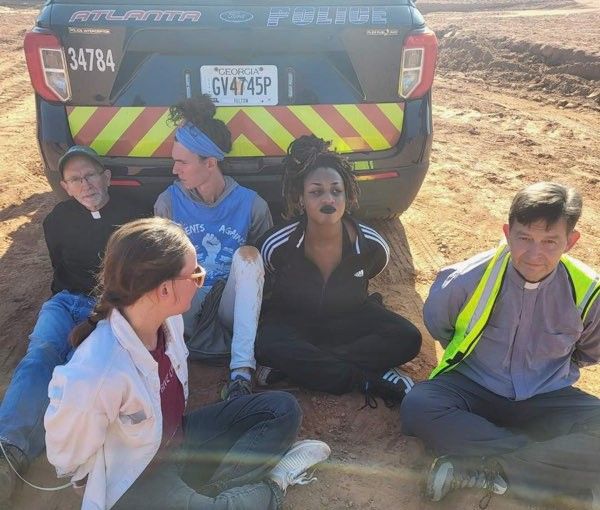Outcome could upend politics ahead of the 2024 election
A federal trial that could force state lawmakers to redraw Georgia’s political maps ahead of next year’s election will enter its second week Monday.
Five lawsuits have been filed challenging the GOP-drawn maps that came out of a special session in 2021, but this trial features three of them, including challenges from Alpha Phi Alpha Fraternity, the Sixth District of the African Methodist Episcopal Church and Black voters across the state.
So far, the action has centered on the attorneys for the plaintiffs who are trying to show that the maps dilute the Black vote and violate Section 2 of the Voting Rights Act. If Judge Steve C. Jones rules in their favor, state lawmakers could be sent back to draw up new district lines.
This week, lawyers representing the state will have a chance to present their defense of the maps, which they acknowledge were designed to protect the Republican majority but say they are fair to Black voters. They have so far framed the legal challenges as a veiled attempt to elect more Democrats, and they say the alternative district lines offered up by the plaintiffs are overly focused on race.
The state’s attorneys have argued that recent elections undermine claims that Black voters are not able to elect candidates of their choice, pointing to the wins of U.S. Rep. Lucy McBath in the Atlanta suburbs and President Joe Biden and U.S. Sens. Jon Ossoff and Raphael Warnock in statewide races.
The outcome of the case could prove consequential heading into next year’s election, since Black Georgians tend to vote for Democratic candidates at high rates. Republicans currently hold a fragile majority in the U.S. House, and any Democratic gains in the state Legislature would add to tightening margins under the Gold Dome.
The U.S. Supreme Court recently stood behind Section 2 of the Voting Rights Act in a surprise ruling this summer that rejected Alabama’s congressional map. A redrawn plan that still did not include a new opportunity district for Black Alabamians was blasted last week by a three-judge panel, which ordered a third-party special master to do the job.
In Georgia, the cases at trial argue a new majority Black congressional district can be drawn in metro Atlanta and that multiple new Black majority districts can be carved out in the state House and Senate maps.
William S. Cooper, a private consultant who created the alternative map, said he was asked to explore whether the Black population in Georgia was large and compact enough to warrant an additional congressional district. But he said race was just one of many factors he considered.
“It practically draws itself,” Cooper said last week, describing the task as “very straightforward, easy.”
That district, congressional District 6, is today represented by Republican U.S. Rep. Rich McCormick who won in 2022 after state lawmakers shifted the boundary lines to favor a GOP candidate. The change prompted the previous incumbent, Democratic U.S. Rep. Lucy McBath, who is Black, to challenge fellow Democratic U.S. Rep. Carolyn Bourdeaux in the racially diverse 7th District based in Gwinnett County.
As a result, Republicans now hold nine of Georgia’s 14 congressional seats, up from eight under the old map.
The attorneys for the plaintiffs argue Georgia’s political maps dilute Black voting power and do not reflect the state’s changing demographics. The number of Black Georgians grew by about 484,000 people since 2010, with 33% of the state now identifying as Black. Meanwhile, the number of white Georgians dropped by 52,000.
They have put experts on the witness stand who say Black voters are left underrepresented in the halls of power and stuck with a system that is unresponsive to what they argue are Black Georgians’ distinctive needs when it comes to issues like health care access, education, employment and social justice.
“Across every metric I looked at, Black individuals are doing worse than white individuals,” testified Loren Collingwood, a political scientist at the University of New Mexico who analyzed socio-economic data.
Collingwood presented voter turnout results that showed a widening gap between Black and white voters in recent election cycles, though the state argued that the same data also showed Black turnout increasing.
The judge has also heard from Black residents across the state who have launched unsuccessful bids for public office.
Diane Brack Evans, who lives in Jefferson County, has been active in Democratic politics, including three runs for a state Senate seat. But she testified Thursday that she was not so much interested in electing a Democrat as she was in wanting an elected official who would “take an interest in her community.”
Evans shared a personal story about her late sister who had chronic medical conditions but was not eligible for Medicaid coverage and eventually ended up uninsured. Evans let her sister move in and she filled in as her sister’s physical therapist. Her story was not all that unique, she said.
“This is really how it is in this area here,” she said.
Fenika Miller, who also testified for the plaintiffs, is a lifelong Houston County resident who has run twice for the state House as a Democratic candidate – including once against a Black Republican – and is now the deputy national field director for the Black Voters Matter Fund.
Miller was asked by the state’s attorney if the alternative maps would help elect more Democrats. She responded that the maps would allow “more Black voters to have a say in what their representation looked like – regardless of party.”
This article originally appeared in The Georgia Recorder on September 12th, 2023, of the State News Room network
.png)
.png)



